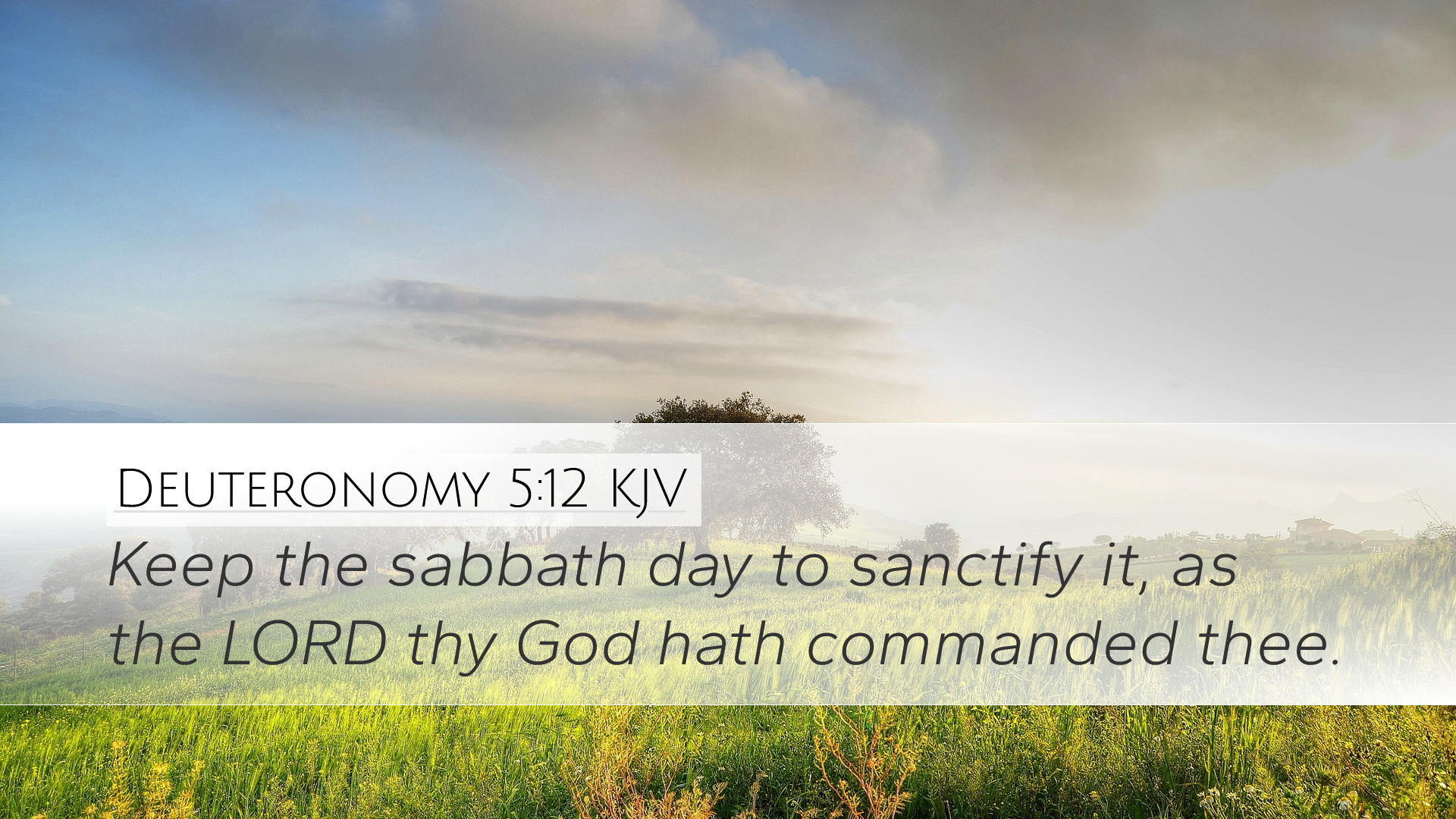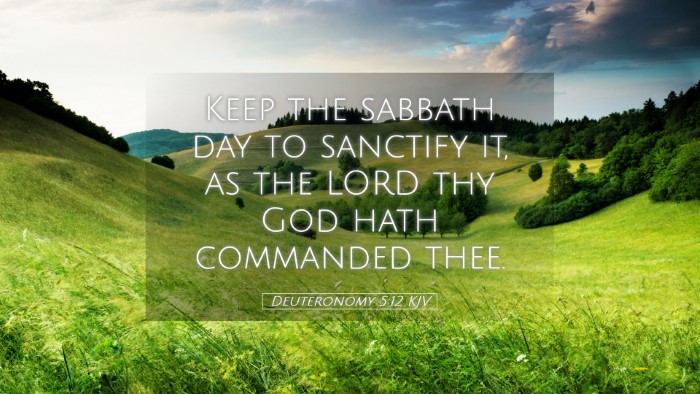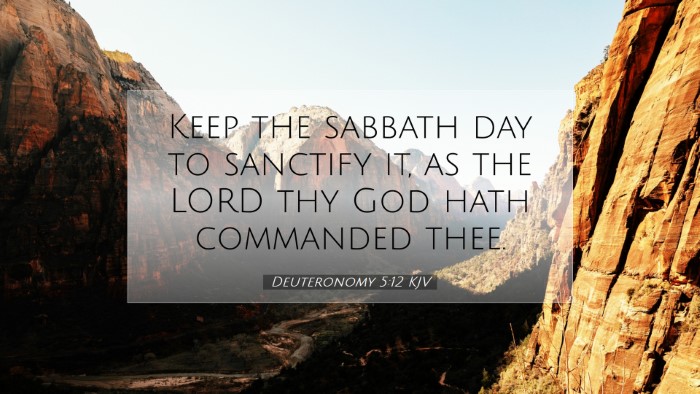Commentary on Deuteronomy 5:12
Verse: "Keep the sabbath day to sanctify it, as the LORD thy God hath commanded thee."
Introduction
Deuteronomy 5:12 is a crucial verse highlighting the importance of the Sabbath in the covenant community of Israel. This commandment reflects God's desire for His people to rest and to dedicate time for worship. In understanding this command, theologians can explore its implications for rest, worship, and holiness within the life of the believer.
Insights from Public Domain Commentaries
1. Matthew Henry's Commentary
Matthew Henry emphasizes the significance of the Sabbath as a day of rest and worship. He asserts that the commandment to "keep the sabbath day" is a reminder of man’s need for regular periods of rest and spiritual reflection. Henry notes that the Sabbath was instituted not merely as a legal requirement but as a beneficial practice for human well-being.
Main Points from Henry:
-
The Sabbath is a day set apart for sanctification, which means it is to be devoted to God. This indicates an ongoing relationship where God’s people seek Him earnestly through worship and reflection.
-
Henry emphasizes that believers should seek to use the Sabbath for good, engaging in activities that promote spiritual growth and community building rather than mere ritualistic observance.
-
The Sabbath is also an opportunity to remember God’s creation and His redemptive work, serving as a symbol of spiritual rest found in Christ.
2. Albert Barnes' Commentary
Albert Barnes provides a more practical understanding of the Sabbath observance. He underscores the roots of the commandment in both the creation narrative and the concept of grace. Barnes discusses how the Sabbath serves as a memorial not only for God's creation but also for Israel's deliverance from bondage in Egypt.
Main Points from Barnes:
-
He highlights the Sabbath as a "perpetual sign" between God and Israel, reinforcing the idea of collective identity centered around divine promises.
-
The importance of the Sabbath in social structures is emphasized; it serves as a means to foster conditions for justice and community welfare, ensuring that all, including servants, have rest.
-
Barnes argues that the observance of the Sabbath is a direct reflection of one’s faith and trust in God, teaching believers dependence on divine provision rather than human effort alone.
3. Adam Clarke's Commentary
Adam Clarke approaches the Sabbath command with an eye towards its historical context and its implications for the Israelites. He stresses that the essence of the Sabbath transcends mere rest; it is to be a time of joyful worship and reflection on God’s providence.
Main Points from Clarke:
-
Clarke points out that the command to remember the Sabbath originates from God’s own rest after creation, establishing a divine pattern for humanity.
-
He highlights the socio-theological dimensions of the command, noting that the Sabbath serves to break the cycle of work and consumerism, allowing for a focus on relationships with God and others.
-
Clarke also discusses the typological significance of the Sabbath, suggesting that it foreshadows the ultimate rest found in Christ, aligning with New Testament teachings on spiritual sabbath rest.
Theological Reflections
The commandment in Deuteronomy 5:12 is rich with theological significance. It not only underscores the importance of rest but also emphasizes the active pursuit of holiness in the life of believers. The practice of Sabbath observance calls for reflection on the nature of God as Creator and Redeemer, laying the groundwork for deeper spiritual engagement both individually and communally.
1. Sabbath as a Means of Grace
The Sabbath is not merely a day off but a divinely ordained time for renewal and grace. It offers believers an opportunity to disengage from worldly concerns and to reconnect with God and community. This renewal is essential as it prepares the heart for worship and service in the days that follow.
2. Holistic Understanding of Rest
The essence of rest involves more than physical recuperation; it encompasses mental, emotional, and spiritual renewal. By intentionally observing the Sabbath, believers can cultivate a rhythm of life that honors God and reflects His peace in a chaotic world. This holistic understanding of rest is vital for pastors and theologians aiming to facilitate congregational health.
3. A Call to Community
The Sabbath serves not only as a personal retreat but also as a communal celebration. The integration of rest within community worship reinforces the idea that believers are interconnected in their faith journey. It challenges individuals to prioritize communal worship, fellowship, and service to others within the framework of the Sabbath.
Conclusion
Deuteronomy 5:12 encapsulates the heart of God's desire for His people: a profound relationship built on remembrance, worship, and sanctification. The insights drawn from Matthew Henry, Albert Barnes, and Adam Clarke provide depth and richness for a comprehensive understanding of Sabbath observance. As pastors, students, and theologians engage with this verse, they are called not just to observe the Sabbath but to embrace it as a significant aspect of their faith lives, where rest and worship coalesce into a transformative experience that resonates beyond the worship hour.


